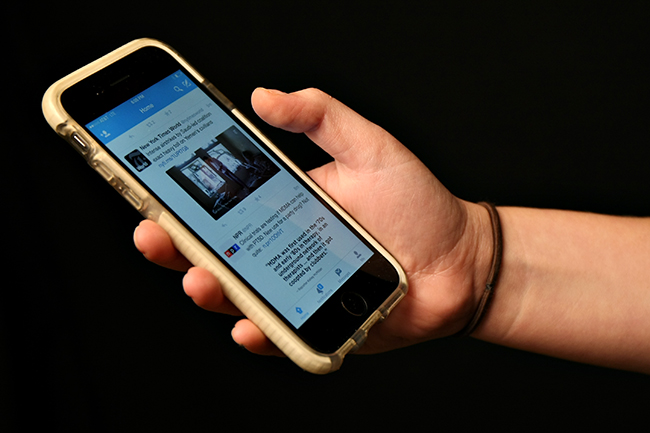What happens when two of the most paradoxical institutions of American culture merge? Chaos, divide and chauvinism. These paradoxes, social media and political parties, are two of the most unifying, yet segregating, aspects of American culture. These two ideas feed off each other, essentially deleting the prospect of a full-scope view. A one-sided view is detrimental to the public.
As social media becomes more omnipotent, it is often forgotten that it is not a proper research tool. A large percentage of the nearly 2 billion active social media users today have some sort of political commentary on their profile. In fact, social media users are more likely to be “civically and politically active” than those who do not use the platforms, according to Pew Research Center. The website also states 39 percent of Democrats and 34 percent of Republicans routinely post articles and opinions confirming their political beliefs. Yonghwan Kim noted in a Science Daily article that in the 2008 presidential election, 10 percent of voters under the age of 30 connected directly with candidates via social media.
This overwhelming activity on social media has highlighted how the polarization of politics has lead to a polarization of people. The divide has resulted in citizens who have psychologically evolved into choosing one extreme, which leads to the dangerous path of losing a middle ground. Any alternative viewpoint outside of the mainstream is now promptly dismissed.
Social work sophomore Victoria Volanski said social media often radically divides people.
“Sometimes I feel like you are supposed to agree to disagree,” Volanski said. “Sometimes it is much easier to get in an argument with somebody on social media when you are behind a screen. I think it creates more polarized views, especially within our generation.”
While social media is a polarizing factor in the U.S., there are other aspects contributing to the separation of the people. Economic and social factors also play a key role, according to government professor David Prindle.
“I think it has something to do with religion, and the fact that religious people are feeling more threatened by society,” Prindle said. “We have a rising polarization on the social level, and economic level, too.”
The combination of social media and political parties in the United States has led to a culture of division. Perhaps George Washington and James Madison were right — there is no greater evil than political parties.
Vernon is a PACE freshman from Houston. Follow her on Twitter @_emilyvernon_.


















